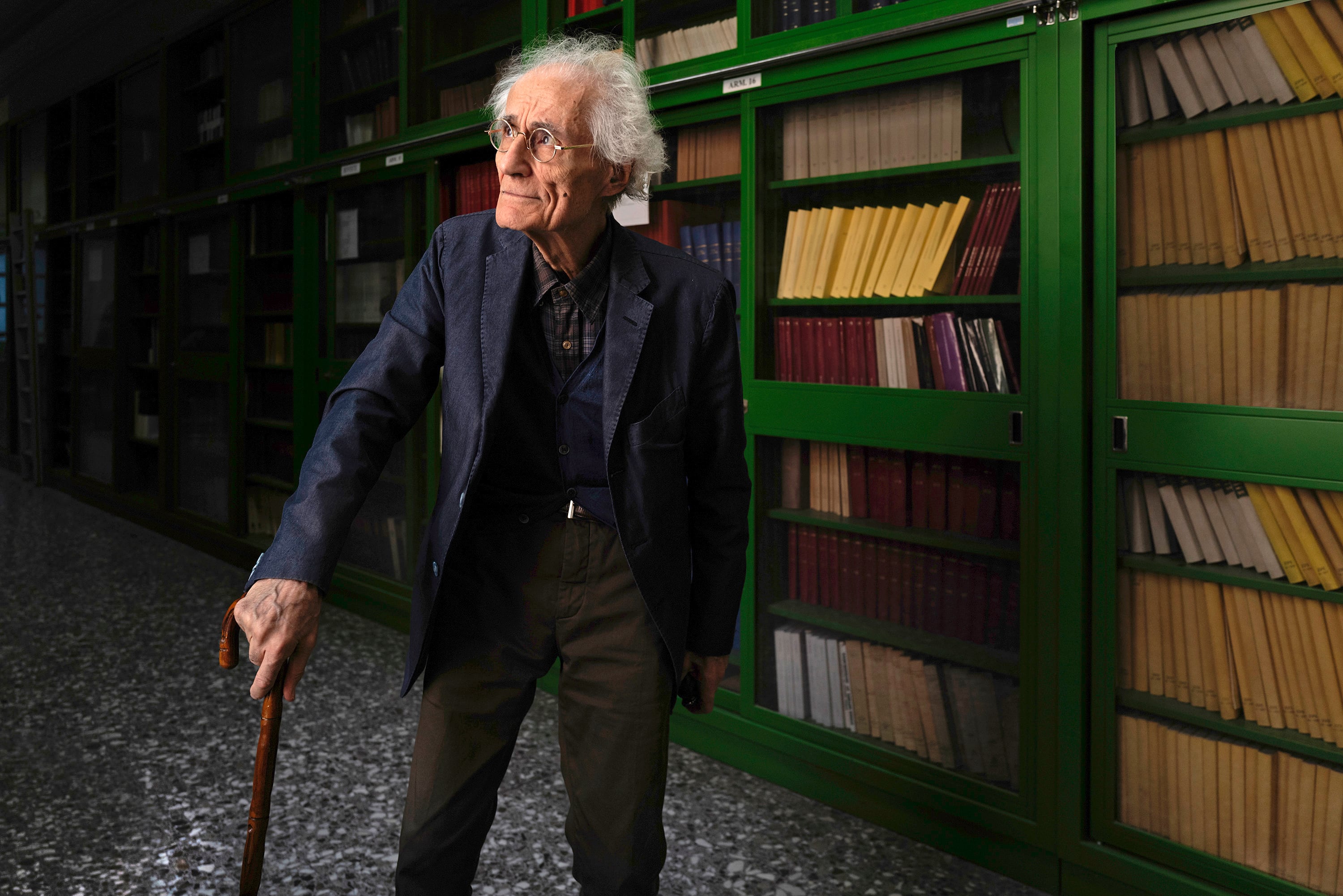The Italian Prime Minister, Giorgia Meloni, has withdrawn the complaint she filed last year against the philologist and historian of the classical world Luciano Canfora, for having called her a “neo-Nazi in spirit” during a talk at an institute in April 2022. This is what The professor confirmed to EL PAÍS by phone, after having learned about it from his lawyer. At that time, Meloni was in the opposition, but the process has continued until now, with a request for 20,000 euros in compensation and the trial scheduled for next Monday, October 7.
However, for the case to be archived, the interested party himself must accept the withdrawal of the accusation. “My lawyer has told me not to say anything these three days, until Monday,” explains Canfora. But are you happy? “Certainly, I am very happy, it is evident.”
The professor, emeritus from the University of Bari, had defended his words, as he explained to this newspaper in an interview two weeks ago, with the argument that “neo-Nazi is a political category, like neo-Stalinist, neoliberal.” “There are those who are happy to be called that and others are not. But it is not an insult, it is an assessment, accurate or not,” he reasoned.
He also insisted that Meloni declared at his inauguration “that he came from the Italian Social Movement (MSI), which is named after Mussolini’s Social Republic, a satellite state of the Third Reich.” Regarding the complaint, he considered “ridiculous for a prime minister to engage in an unequal duel with an ordinary citizen.”
It is not the only complaint that Meloni has presented, within an offensive by the leader of the Brothers of Italy and members of her far-right Executive against critical journalists and intellectuals. In total, they have taken five to court. In addition to Canfora, the best known case is that of Roberto Saviano. In October 2023, the Rome court sentenced the writer to pay 1,000 euros for defamation when in 2020 he called her a “bastard” for her positions on immigration in a television program. The author of Gomorrah He spoke of a shipwreck with fatalities and said: “Everything you have said about NGOs will come back to your mind: sea taxis, cruise ships (…). All that remains is to call you bastards. To Meloni, to Salvini, how could you? How was this possible?”
“It makes us understand the situation we are experiencing, with an executive branch that continually tries to intimidate those who tell their lies, exactly as (Viktor) Orbán does,” Saviano highlighted after the sentence. The civil party had requested 75,000 euros and the prosecution, 10,000. “Are we really accepting that the political power expects the judicial power to delimit the perimeter within which a writer can move? “Is it so difficult to notice the proportion between who has political power and who has only their own words?” he declared.
Meloni even denounced a journalist freelance for having insinuated that she was short, and won. It was last July. A court sentenced Giulia Cortese to pay 5,000 euros for two tweets from 2021, considered “defamatory” and with phrases mocking the president’s physique. After getting into a fight on social media with Meloni, this journalist called her a “slut” and in another tweet said: “You don’t scare me Giorgia Meloni. “Besides, you’re five foot eight. I don’t even see you.” For these two sentences she was convicted. The Italian press noted that he had rejected a previous agreement. The prime minister’s entourage assured that Meloni would give the money to charitable causes.
Francesco Lollobrigida, Minister of Agriculture and brother-in-law of Meloni until he separated from his sister this summer, also complained against the philosopher Donatella di Cesare when she called him a “neo-Hitler” for talking about the risk of “ethnic substitution”, referring to immigration. . In this case, the court acquitted Di Cesare, a professor at La Sapienza University in Rome. Similarly, Lollobrigida complained against the rector of the Siena University for Foreigners, Tomaso Montanari, for similar opinions in an article.
In addition to these conflicts that have ended up in court, the Meloni Government has been accused of trying to subjugate public television, RAI. The workers have denounced “daily censorship” in the network’s news, which they have named TeleMelon. Last May they called an unprecedented strike. A month before, a great controversy broke out due to the suppression in a program of an intervention by the writer Antonio Scurati, author of the series of novels M. about Mussolini, with a monologue very critical of the Government. All of this led the European Commission to express its concern about press freedom in Italy and the independence of the public broadcaster RAI in its report on the rule of law in the countries of the European Union.
Another controversy has affected the writers selected to attend the Frankfurt book fair, which will be held starting next October 16 and where Italy is the guest country this year. Saviano was left off the list, and many others sympathized with him. The writer Paolo Giordano promoted a letter from 41 authors protesting against the Government’s interference in cultural management. Finally, Saviano, like Scurati, will be present at the event invited by the organization, but several writers will not attend in protest of what happened.

